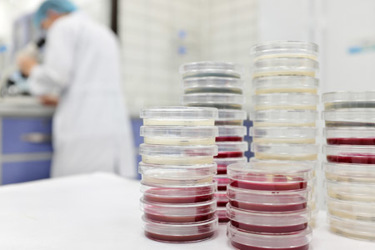Stable Bulk Cultures: A Fast Path To Antibody Manufacturing

Traditionally, creating antibody-producing cell lines involves random integration of the desired gene into the host cell's genome, which can result in unwanted mutations, concatemerizations, truncations, and other genetic issues, making it challenging and time-consuming to isolate high-expressing clones. Transposase-mediated technologies instead offer a more efficient approach. These technologies utilize transposases, enzymes that perform a simple cut-and-paste function to move a transposon from one site to another, to insert the desired antibody-encoding gene along with its regulatory elements and flanked by Inverted Terminal Repeats (ITRs) into the host genome. This semi-targeted approach substantially increases the likelihood of stable genome integration and proper expression.
The potential advantages that stable bulk cultures can offer a drug development paradigm are poised to accelerate and bolster biopharmaceutical clinical manufacturing. While historically these bulk cultures have exhibited lower antibody titers, stability, and quality when compared to isolated clones, pools produced using transposase technologies are poised to overcome these hurdles, representing a significant leap forward for the industry.
Get unlimited access to:
Enter your credentials below to log in. Not yet a member of Bioprocess Online? Subscribe today.
